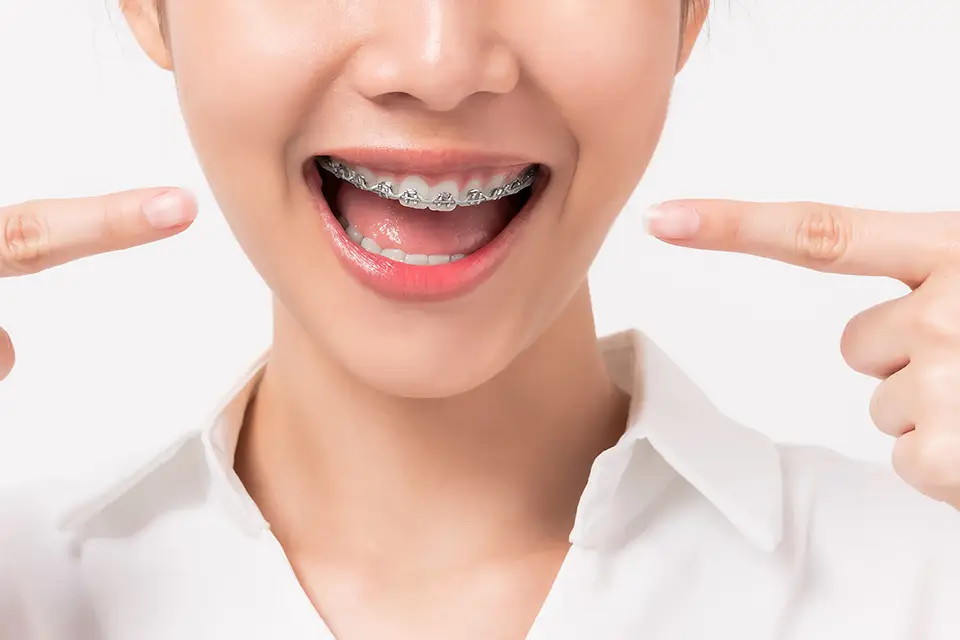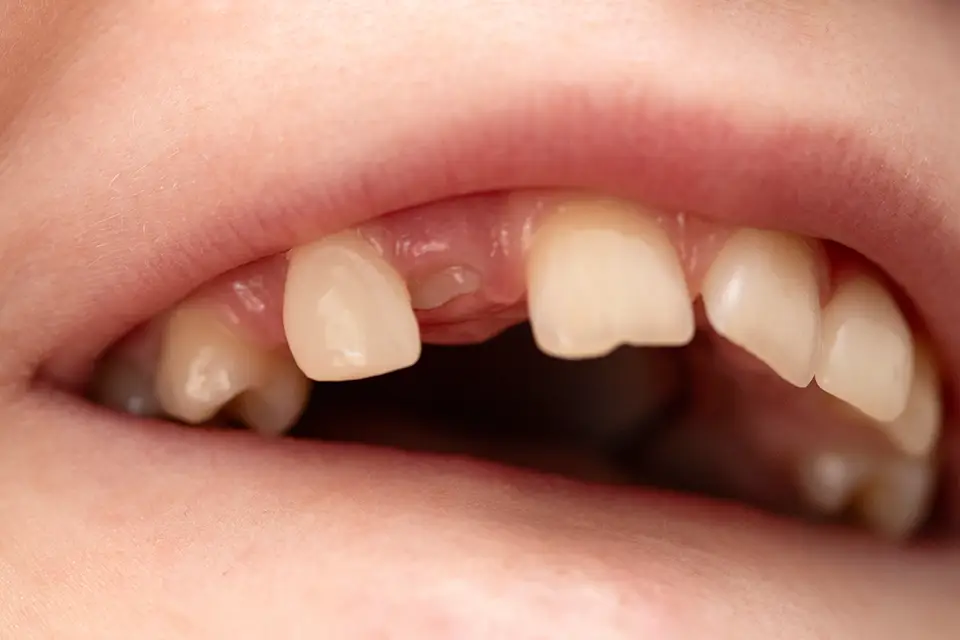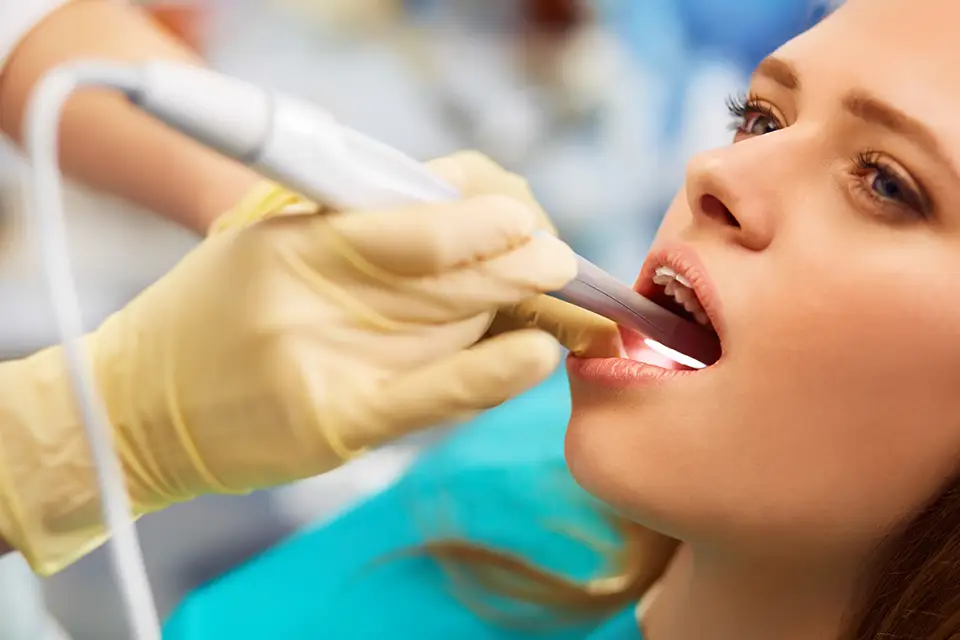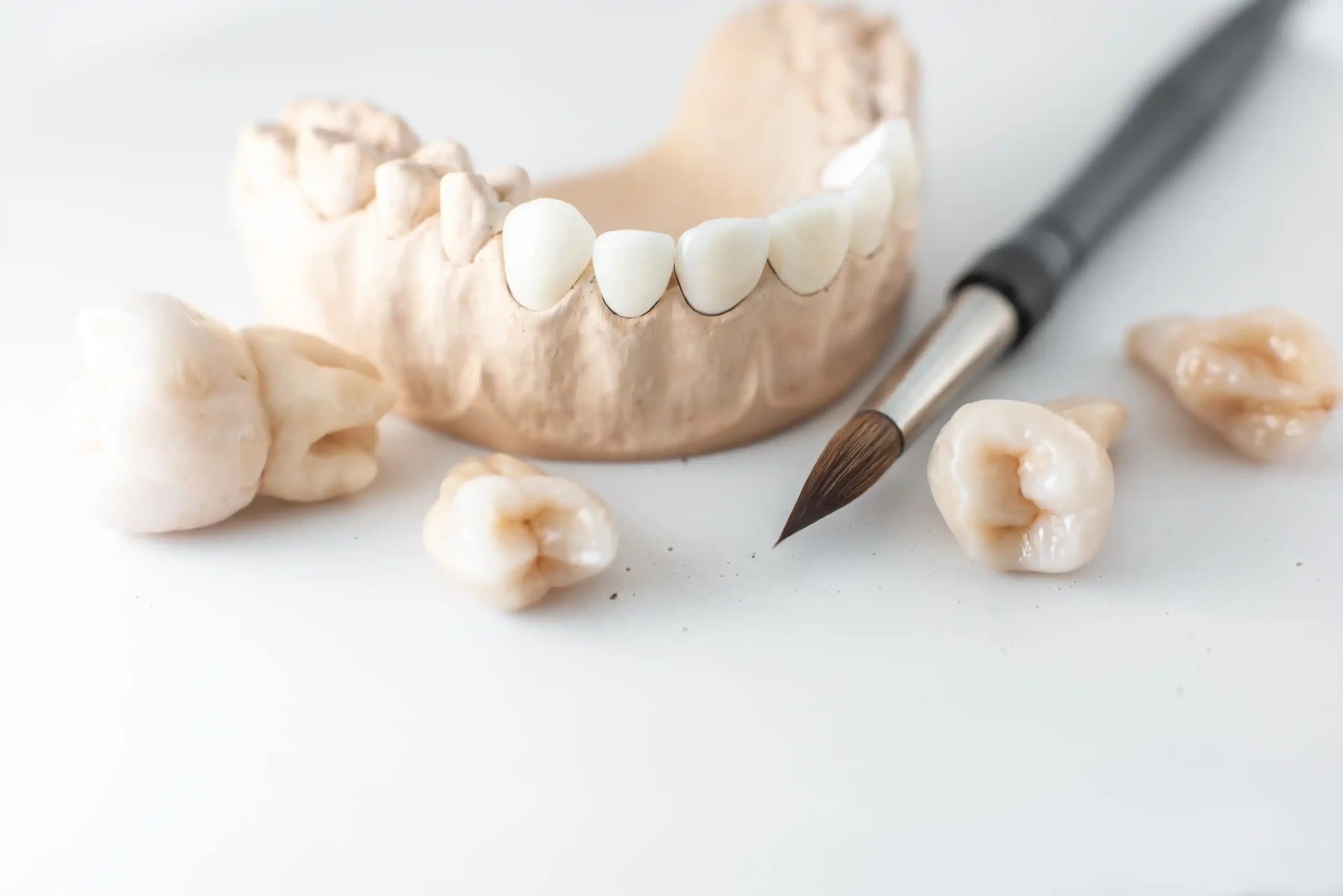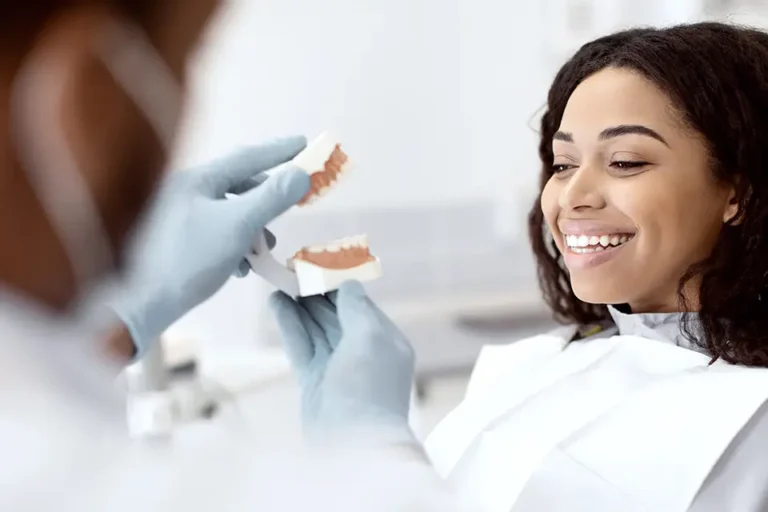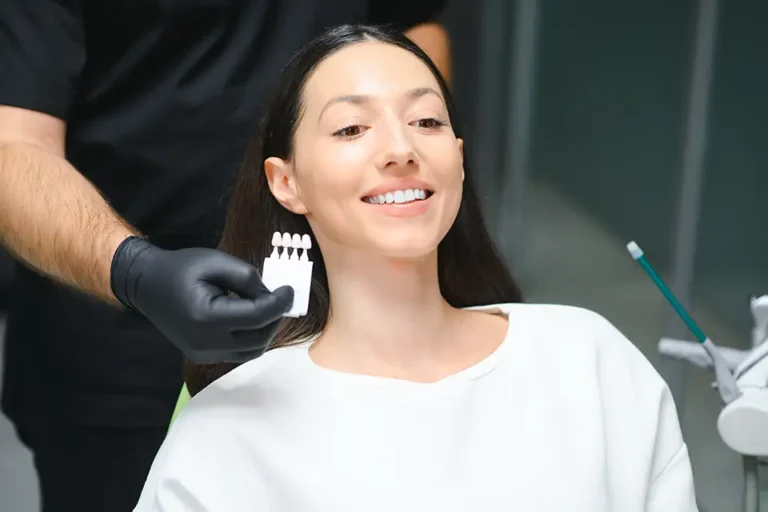Are you experiencing a failed dental crown? Has your temporary crown fell out? Do you wonder what causes the crown to hurt? Did your permanent crown fell out? A dental crown is a cover or a ‘cap’ that your dentist places over one or more of your teeth. Essentially, the crown’s functions are to get the shape of your tooth or teeth back by restoring the normal size, shape, and functions of the tooth.
In many cases, a dental crown will help restore your teeth’s strength and prevent any further destruction. After complete cementation of the dental crown over your tooth, the whole visible portion of the tooth over the gum becomes hidden. The dental crown then becomes the visible part of your tooth. The crowns will then experience the functional impact of your teeth.
Why Do I Need a Dental Crown?
A good number of dental patients seek dental crowns for various reasons. Some of these reasons might include the restoration of dental functions, improvement of your oral health, correction of dental malformations, or basically the need to augment a person’s external appearance. The following are the main reasons that you might need a dental crown.
- Protection of weak teeth from tooth decay or breakage
- Holding together of a cracked tooth
- Uplifting worn out or broken tooth
- Support or cover a tooth when most of the crown fell out. Your dentist can do this by adding a large filling.
- Secure a dental bridge in position
- Cover improperly misshaped teeth
- To cover discolored teeth
- It provides a cover for dental implants
- To provide a cosmetic modification
- Dentists also use the dental crown on the primary teeth of babies so as:
- To save teeth or a tooth that is severely decayed and cannot be supported by filling or any other method
- Protect the child’s teeth from tooth decay or cracking, especially when they are not good at keeping up oral hygiene.
- Reduce the need for frequent anesthesia in children who cannot keep up with proper dental care either due to behavior, age, or history such as medical history.
If a child requires dental crowns, your pediatric dentist will most likely recommend stainless steel crowns for your child.
Failed Dental Crown
Do dental crowns fail to work? Just like all the other treatments, there is a high probability of dental crown fell out. However, this probability of failure is pretty marginal and should not cause worry or skepticism since it occurs at a very low rate. Nevertheless, if your dental crowns are failing, you will experience some pain around the area where the crown rests. This happens with an increasing frequency during eating, especially when you bite down on food.
At this point, you will be wondering whether it is a problem with the tooth or the cap. If you face this problem and have had a recent capping of your tooth with a dental crown, the crown could be the cause of your problem. At this instance, it is advisable to visit your dentist for diagnosis and point-on treatment. To better understand what a dental crown failure is and why it can happen, we must look at installing a dental crown.
The Dental Crown Attachment Procedure
The dental crown attachment procedure is one of the shortest dental installation procedures that you can undergo. For just two visits to your dentist, your procedure will be complete. What is the dental installation process? Well, depending on your dentist, you will undergo four processes. These processes are mainly to ensure that your tooth is well prepared to hold a crown. These steps include the following.
- The dentist prepares the tooth that needs a cap. This will involve removing the outer parts of your tooth and any decay on your tooth. If your tooth needs additional support to support the incoming crown, your dentist will build up the core of your tooth.
- Impression making. To ensure that the crown is an exact replication of the tooth it will cover, your dentist will make a mold impression or use digital technology to scan the tooth.
- Installation of a temporary crown. Before you can get your permanent crown, your dentist will fit your prepared tooth with a temporary crown. You will have to wear the temporary crown for two weeks before the permanent crown is ready. During this time, you will probably experience high tooth sensitivity to cold or hot substances. It is advisable to keep off sticky food or chewing gum during this period. However, if your dentist has the equipment needed to develop the permanent dental crown, you will get the crown on the same day.
- Placing the crown onto the tooth. When the crown is ready, your dentist puts the crown on your tooth. If you are comfortable with the tooth’s new appearance, your dentist cements the crown into place.
If your tooth was too badly destroyed by decay or cracking, the dentist might have to craft a new tooth to provide a base for installing the crown.
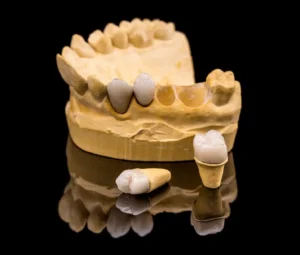
Why Would I Experience Dental Crown Failure?
Why would a tooth with a crown hurt? What causes a crown to hurt? Why does my crown hurt? Dental crown installation involves preparing a tooth by removing decayed parts of the tooth, sticking together the tooth’s cracked pieces, and reshaping it so that a crown can fit. If the tooth is badly damaged, there is a high probability that the crown may fail. If you have had a root canal failure, you might develop a sensitive crown.
Primarily, the cause of crown failure is a factor of technical errors. These technical errors originate from human mistakes and not necessarily due to product failure. The first technical error is installing a wrong fit, bonding, and the tooth post’s cementing. These bonding materials include dental crown glue, tooth crown glue, or tooth cement. The second technical error is a poor crown choice to treat the patient’s bite or occlusion. The following is a list in which you will find some of the other reasons behind the dental crown failure.
- The decayed pulp is more in-depth into the root of the tooth. In the case of extensive tooth decay, a root canal might be required to remove the decay. If this procedure is not administered, you will experience sharp pains and problems chewing despite installing a crown.
- This is a condition whereby a person grinds their teeth during sleep. If this happens and you apply unusual pressure to your teeth’ enamel, you will probably experience a failed dental crown.
- Failed filling: If you have had a failed filling procedure in the past, you will probably experience pain around the base of your crown. This is primarily because a failed filling procedure leaves your inner tooth exposed and leads to a painful sensation.
Tell-Tale Signs of a Failed Dental Crown
When a crown is about to fail, you will probably experience some pain around the crown’s base or toothache under crown. In most cases, this is not the only sign of the need to fix your crown. If you observe the following signs, then you are probably experiencing a failed dental crown.
Loose Crown causing Failed Dental Crown
A loose crown indicates that the bonding material between the tooth and the crown has weakened. The tooth cement, tooth crown glue, or dental crown glue are bonding materials used to keep your crown in place. In such cases, the tooth cement attaching the crown to the tooth becomes weaker and can no longer provide support. When this happens, you will experience a failed dental crown.
Pain Under Dental Crown
Root canal failure, failed fillings, or infection under a dental crown might lead to severe pain under dental crown. If you experience this sign, it is time to visit your dentist for a crown checkup or crown replacement.
Crown Fell Off Causing Failed Dental Crown
If your temporary crown fell off, there is a good chance that your permanent crown might not work as it should. On the other hand, if your permanent crown fell out, you should consider seeking a crown replacement from your dentist.
Partial Crown Pain
In most cases, partial crown pain is subtle and does not present itself as a major cause of dental crown failure. However, this pain could be the precursor to a failed dental crown.
Pain When Flossing Around Crown
You can also identify dental crown failure during cleaning or brushing your teeth. Pain when flossing around crown is one way to tell when you need to fix your crown.
Gum Pain Around Old Crown
Dental crowns are not intended to provide a long term solution to your problem. With time, you might develop an infection under a dental crown, leading to gum pain around old crown.
Crowned Tooth Hurts With Pressure
Past failed tooth operations such as a failed root canal can lead to this problem. If your crowned tooth hurts with pressure, you might also have a sensitive crown, tooth crown pain pressure, and a toothache under crown.
Treatment Options for Failed Dental Crowns
If your temporary crown fell off, consider visiting your dentist for further instructions. Falling off of a crown can be a result of temporary glue wearing off or poor fitting. Though this could be a sign of a potential failure in dental crown installation, it is mostly caused by wearing out of the bonding material. Treating failed root canal dental crown failure causes requires an advanced procedure to remove the decayed pulp from the teeth and treat the exposed nerve that causes tooth crown pain pressure.
To keep your crowns in place, it is important to ensure that you avoid extra hard and sticky foods. Chewing hard food might lead to uneven pressure, becoming exerted on the crowns, leading to the crown becoming dislodged. If your permanent crown fell out due to a failed bonding, your dentist can reattach the crown with a stronger crown cement. However, if there are no underlying problems with the installed dental crowns, maintaining strict dental care can be instrumental in ensuring that your crowns stay in place.
Contact the Experts
A failed dental crown should closely evaluate whether the cause of the failure is due to the crown or the tooth itself. A visit to your dentist is probably your best bet for solving failed dental crown problems. If you are looking for the best dentist in Houston, you can contact Zara Dental. Zara Dental is at 6295 Bissonnet Street. If you are in Houston, you can visit us and get the best dentist in Houston.
Failed Dental Crown FAQs
Q. Why does my crown hurt?
A. The causes could be several and dependent on each specific case. Infections around the crown or sensitivity are some of the causes.
Q. Why would a tooth with a crown hurt?
A. Crowns provide a way to resize and reshape a tooth; if the tooth’s underlying problems are not worked out, the tooth might hurt.
Q. What causes a crown to hurt?
A. If your crown hurts, it could be due to a problem with the crown installation procedures or a problem within the tooth itself.
Q. What should I do if my crown fell out?
A. Visit your doctor for reattachment or any other relevant action.



